Would Oklahomans approve a change in the state's primary election system?
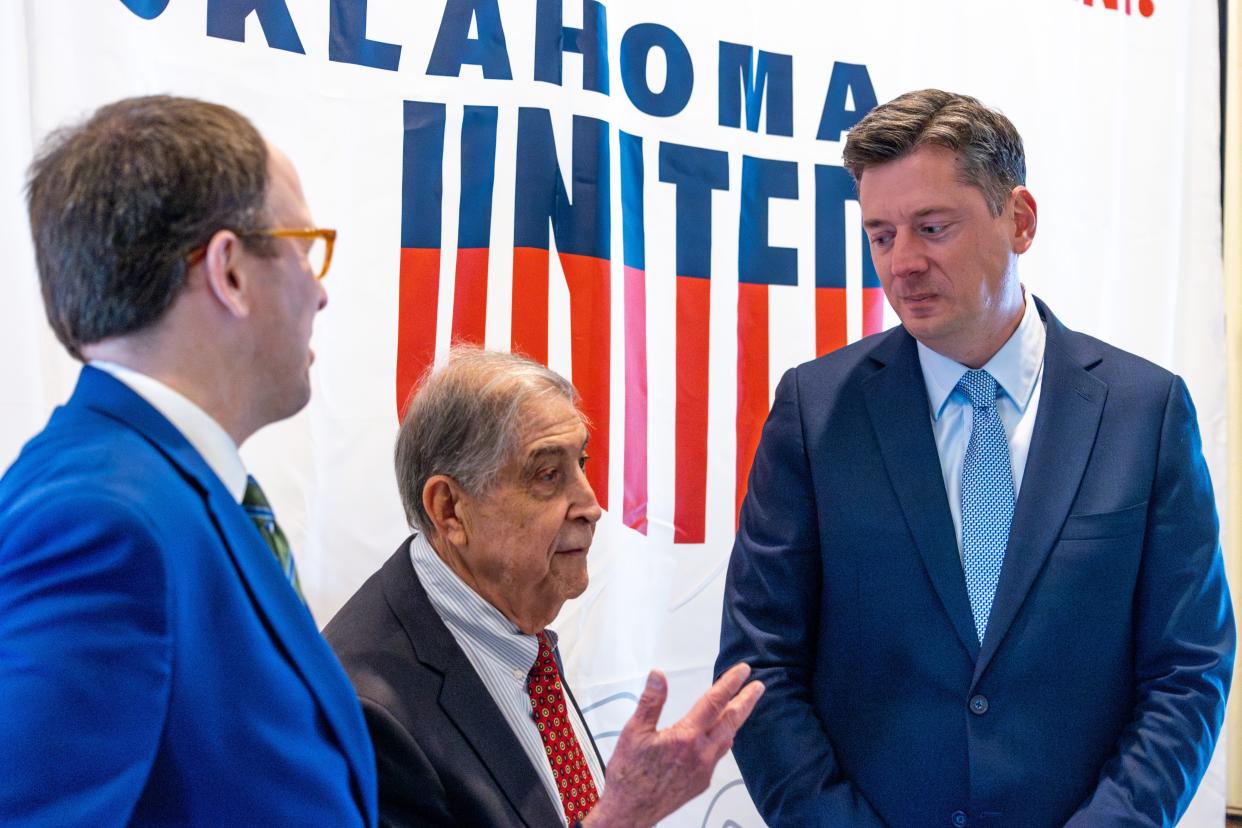
- Oops!Something went wrong.Please try again later.
As a Republican member of Tulsa’s city council, G.T. Bynum rather forcefully opposed a proposal to make municipal elections in Oklahoma’s second-largest city nonpartisan. But voters were in favor of the plan and the change was made.
Now in his second term as Tulsa’s mayor, Bynum has completely altered his viewpoint.
He's now a fan of nonpartisan elections and their cousin, open primaries, saying they lead to more effective government by reducing the potential for partisanship in office.
Bynum joined three other prominent Republicans, Oklahoma City Mayor David Holt, former U.S. Rep. Mickey Edwards and Labor Commissioner Leslie Osborn at a recent fundraiser for a group called Oklahoma United for Progress that is seeking to promote the idea of some sort of open-primary system for Oklahoma.
What kinds of primaries are there, and how do they work?
There are two main types of open primaries:
One allows voters to participate in Democratic and Republican primaries regardless of how they are registered. Oklahoma's Democratic Party now allows independents to vote in their primary, but not Republicans. However, the state's Republican Party only allows registered Republicans to participate. The same is true for the Libertarian party and registered Libertarians.
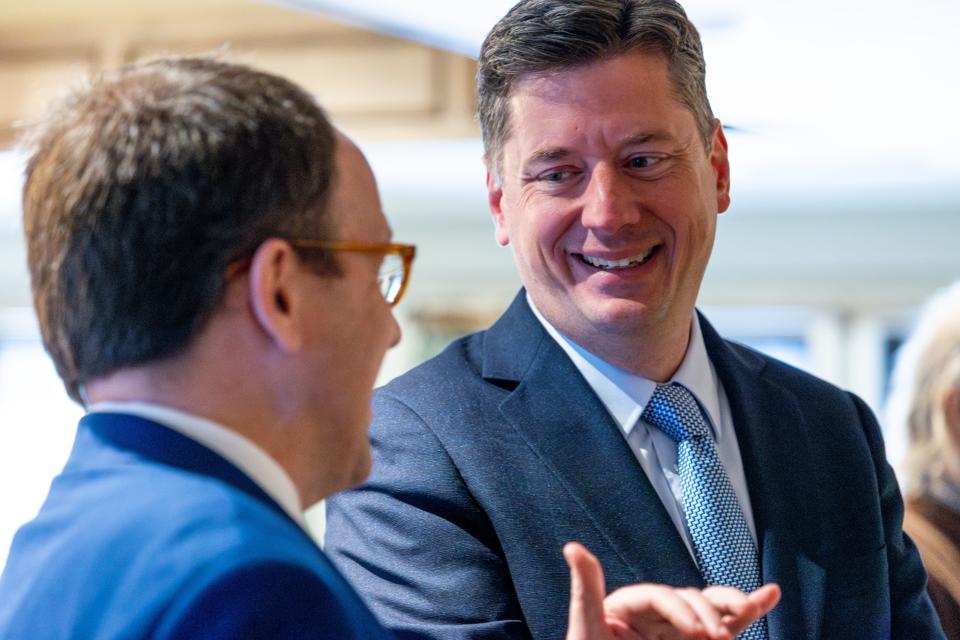
Another option is having a single primary election in which Republicans, Democrats and independents could all vote. The two candidates with the most votes, regardless of their party, would advance to the general election.
The early November event drew politicians from across the political spectrum, including Democrats like state Rep. Andy Fugate of Oklahoma City, state Rep. Jared Deck of Norman, state Rep. Annie Menz of Norman and state Sen. Julia Kirt of Oklahoma City.
Bynum said he originally opposed making the Tulsa mayor's race nonpartisan because he thought that the involvement of the political parties would increase voter turnout.
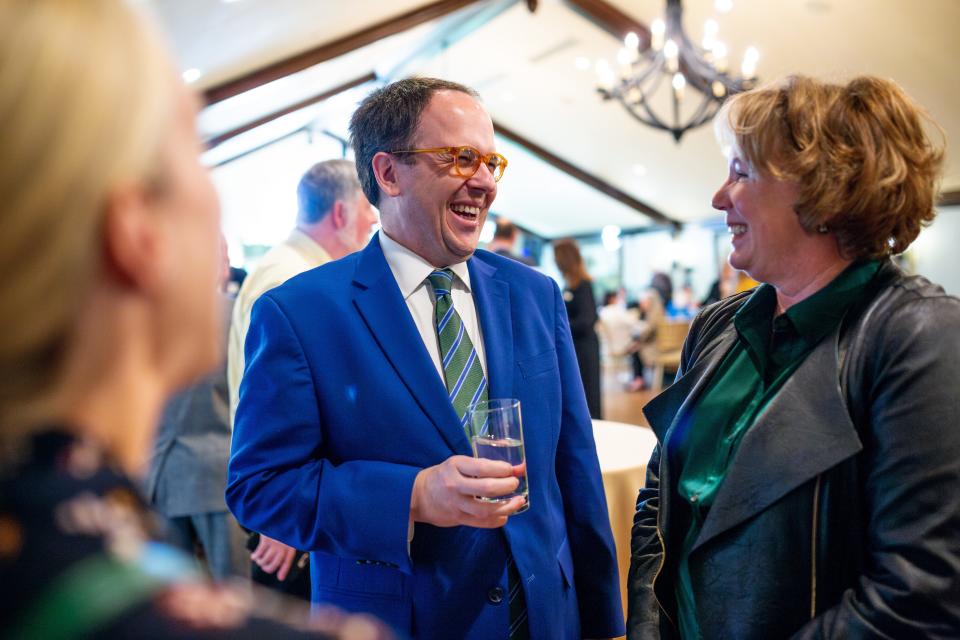
“I was dead wrong," he said. "We have not seen any such decline. The other key thing for me that made me change was seeing, even on our city council, the change in dynamic. There are still differences in opinion … but it’s over policy and personalities, not partisan identity. When I ran for mayor, I ran as a committed nonpartisan with Republican support, Democratic support and independent support and I’ve tried to govern that way.”
Margaret Kobos of Tulsa, the founder of Oklahoma United for Progress, said the eventual goal is generating support for an initiative petition that would propose some form of change to the primary system. She said the group needs to determine first, through polling, what sort of ballot language would have the optimal chance at passage.
“’Open primaries’ means a lot of things,” said Holt, who – like Bynum – was elected through a nonpartisan vote. “What we mean is (having) a better system than the one we have.”
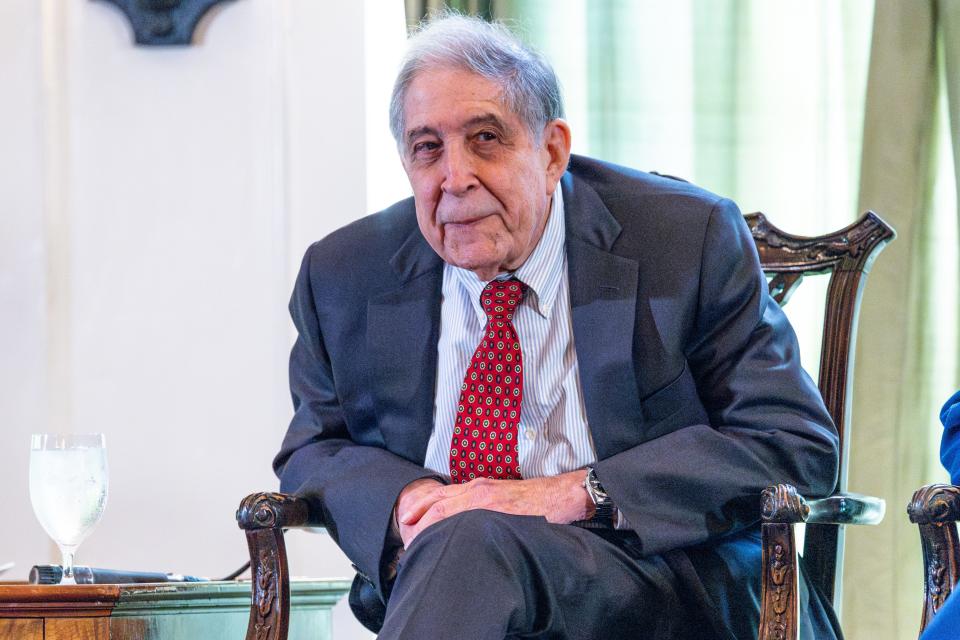
Edwards, 86, served as the 5th District representative in the U.S. House from 1977 to 1993. He long has been a proponent of changing the primary system. In 2012, he wrote a book, “The Parties Versus the People,” decrying partisanship and arguing for a change in how political candidates are selected.
Edwards grew up in Oklahoma City, attending Capitol Hill High School, and tells a story about trying to register as a Republican as a young man in the 1950s. It was suggested to him that he should register instead as a Democrat, since that party held most of the political power in Oklahoma at the time.
More: NH schedules its first-in-the nation primary, despite an ongoing battle with Democrats
Decades later, the political pendulum has swung in favor of Republicans, who hold commanding majorities in both the state House and Senate and control each of the state’s seven congressional seats and every statewide elected post. In numerous state races, Edwards notes, Democrats don’t even field a candidate, which means Republican primary voters are choosing representatives for all the people of the state with no input from Democrats or independent voters. He argues that this situation concentrates power in the hands of party leadership and doesn’t encourage the selection of candidates who might have more moderate or centrist views.
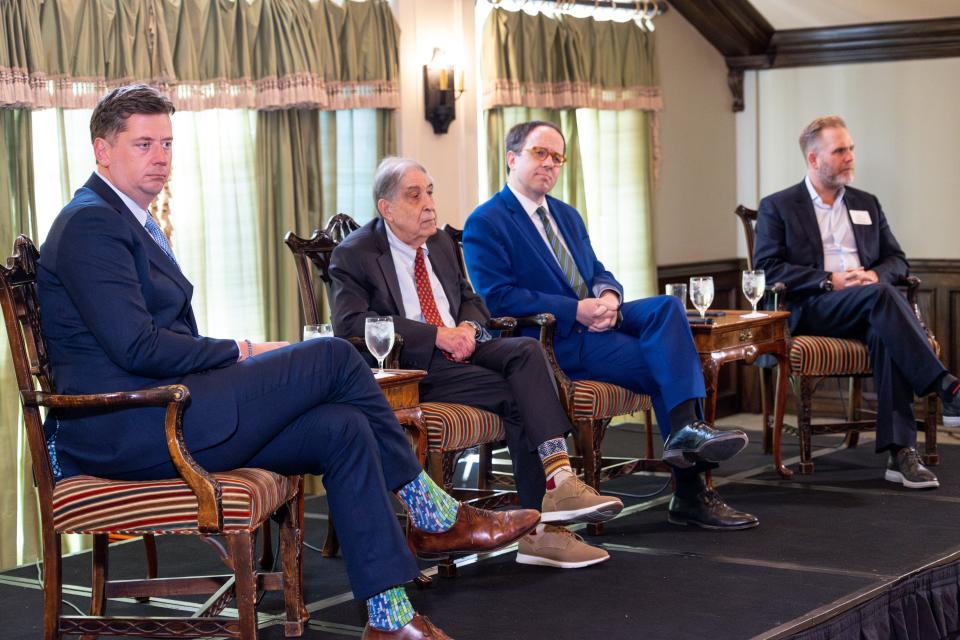
How many voters are registered to each party in Oklahoma?
According to Oklahoma State Election Board figures, there were 2,288,500 registered voters at the end of October. Of those, more than half — 1,184,156 — were registered Republicans. There were 654,433 registered Democrats, 428,357 registered independents and 21,554 registered Libertarians.
Open-primary supporters also argue that the lack of competitive state races can affect turnout in the general election. For example, Oklahoma had the nation’s lowest overall participation rate in the 2020 presidential election, which also meant a lower turnout for state races on the same ballot.
On the 2022 state ballot, of the 831,778 eligible voters living in a Senate district with an election, 162,383 were unable to cast a vote because they were registered as an independent or a member of a party that did not have a candidate, according to The Oklahoman’s analysis of voter data. More than 209,000 voters also could not participate in open state House district elections because they could not vote in the only primary race being held.
Open-primary advocates say the lack of choices in such elections often results in representatives who, once in office, cater only to their party’s primary voters and not to the electorate at large.
“There are so many reasons to dislike closed, partisan primaries,” said Holt, who served in the Oklahoma Senate before becoming Oklahoma City’s mayor. “Mine is mostly just about good government and the fact that the entire electorate makes better decisions than subsets of the electorate do. I’ve seen both. I ran in a closed partisan primary as a senator. I never had a general election for two terms as senator. All I ever was incentivized to be concerned with was the subset of my electorate, which was essentially a little less than half, who were registered Republicans. But don’t I serve everybody?
“As mayor, I run in a system where all of the voters get to see all of the candidates and all of the candidates have to face all of the voters and you have an entirely different set of incentives," Holt said. "The political gravity of the electorate is in a different place.”
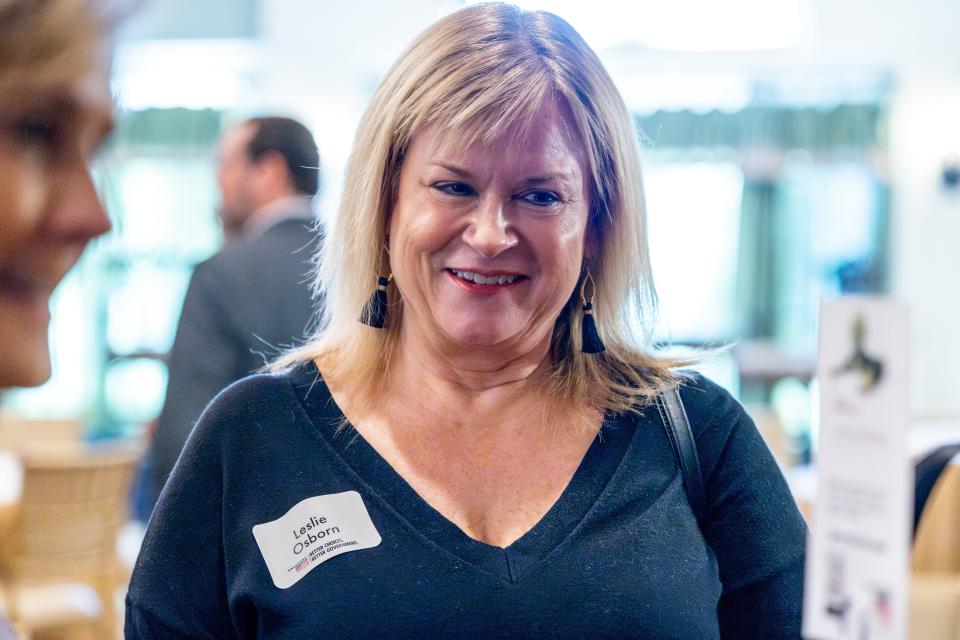
Osborn said her recent electoral experience is indicative of the difference an open-primary system could make. Considered a moderate Republican, she survived a close GOP runoff in 2022 — winning with only 53 percent of the vote against a more-conservative candidate. But then she won 65.7 percent of the vote in the general election, which included both Democratic and Libertarian opponents. Her 747,037 votes were the second-most among any candidate for statewide office, trailing only Attorney General Gentner Drummond.
'The evidence I see is that this won't be the cure-all they think it is'
Matt Hindman, the chairman of the political science department at the University of Tulsa, said some Oklahoma voters already are trying to work within the system, registering as Republicans to try and elect more moderate GOP candidates at the primary stage.
He's skeptical that an open-primary system would result in a sea change in the type of candidates that emerge.
“If you’re looking to undermine the authority of party leaders, open primaries are a mildly effective way to do that,” Hindman said. “If Oklahoma implements an open primary, are we going to see a big difference in the type of candidates that emerge? At the margins, maybe it could lead to different types of candidates. The evidence I see is that this won’t be the cure-all they think it will be.”
Kobos said her group is conducting polling now and will analyze the data before moving forward with devising a policy and, eventually, language for an initiative petition. Then would come the often-grueling process of obtaining a sufficient number of voter signatures to place it on the state ballot. She’s hopeful that all can happen “maybe earlier than 2026.”
Supporters of the open-primary proposal say it’s not much different than what Oklahoma City and Tulsa already use for mayoral elections, so it should be familiar to a wide swath of state voters. They hope that its nonpartisan nature appeals to voters across the spectrum.
“We take no positions on issues or candidates,” Edwards said. “We’re just trying to fix the system.”
This article originally appeared on Oklahoman: Does Oklahoma need an open primary? Group working to change plan

